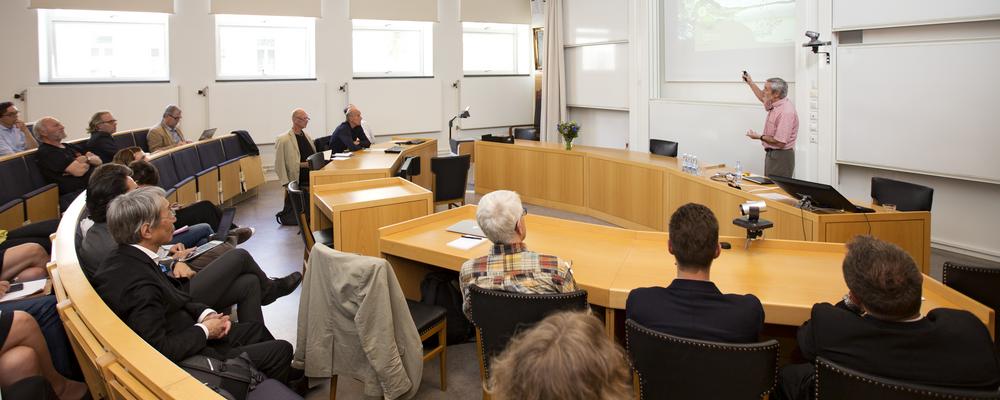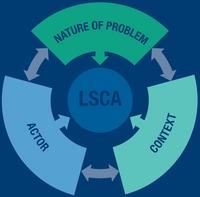
Research Agenda and Research Themes
The overarching question guiding CeCAR is simple: Under which conditions does successful Large Scale Collective Action (LSCA) occur? To address this question, it is not possible to rely exclusively on previous research primarily occupied with small-scale collective action. These studies correspond poorly with situations where the number of actors is large and where several types of actors, ranging from consumers to nations, organizations and firms, are involved.
Small-scale collective action
Research on small-scale collective action holds that users of a common pool resource can overcome collective action problems, typically by setting up self-governed regulatory systems. Key to these systems is a number of factors that are not present in large-scale settings, for example a small number of resource users, opportunities for face-to-face communication, repeated interactions, and information about other actors’ compliance with the governance system.
Large-scale settings
In large-scale settings, the underlying conditions are thus very different. For example, agreement and enforcement will be more difficult with a large number of participants; cultural diversity makes it less likely that one can find shared interests and understanding; and the requirement of unanimous agreement in international treaties restricts the types of policies that can be adopted, because national governments can hold out for special privileges. From this list of differences, we can already identify a number of factors that may affect prospects for successful LSCA.
Voluntary and regulated collective action
In those large-scale contexts, it is also important to distinguish between voluntary and regulated collective action. Voluntary collective action implies action without coercion from a third party (for example a state or some other formal authority) and is something that constantly occurs in small-scale contexts. However, since larger groups of rational and self-interested actors will seldom voluntarily cooperate “without coercion or some other special device” in place, a third party typically needs to be introduced to develop measures aimed at creating collective action through the introduction of policies and policy instruments or through active support of coordination. Whether or not any such regulated collective action will emerge depends on the degree to which the involved actors comply with these policies and actions. Thus, due to the apparent risk of free-riding behaviour, compliance with policies should also be seen as a type of collective action.
1. What factors determine successful voluntary LSCA?
2. How do these factors interact and what is the effect of such interactions on voluntary LSCA?
3. What factors determine successful regulated LSCA, for example compliance with policies?
4. How do these factors interact and what is the interaction effect on regulated LSCA?
Research themes
We have identified a set of factors that research suggests may affect actors’ propensity for both voluntary and regulated Large Scale Collective Action (LSCA). We have divided these factors into five groups.
